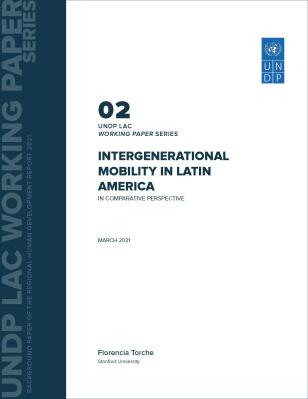Intergenerational mobility in Latin America in comparative perspective

Intergenerational mobility in Latin America in comparative perspective
March 26, 2021
We examine trends in intergenerational educational mobility in Latin America using an international comparative perspective that considers cohorts born between 1940 and 1990. Education is a relevant dimension of mobility because educational attainment is the main predictor of economic well-being, and it also predicts a wide range of outcomes, including health and mortality, longevity, marriage and political participation. The findings indicate that absolute and relative mobility have increased substantially in Latin America over the last few decades in the context of large educational expansion. The increase in educational mobility is entirely driven by expansion, which creates room at the top among individuals with disadvantaged social origins, rather than by widening opportunity net of educational expansion. Given that educational expansion is likely to weaken in the future, this finding is problematic and suggests that governments will need to intervene with aggressive strategies to equalize opportunity if the attempt is to foster mobility. We also suggest the need to consider, in examining educational mobility, not only the amount of education, but also the quality and type of schooling, including private or public sector of education, institutional selectivity and the field of study.

 Locations
Locations




